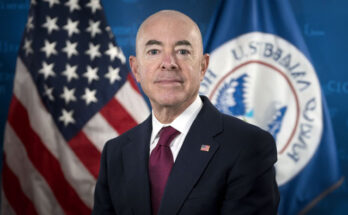Column By Mike Bibb
Reviewing the county Board of Supervisors’ recent COVID-19 “Regulations Requiring Face Coverings In Graham County,” followed by the city of Safford’s refusal to follow suit with a similar proclamation, seems to indicate not everyone is of like-mindedness regarding face mask usage. After wading through the BOS’ reasons why the wearing of facemasks are necessary to protect the public from each other, and acting under the guidance of the governor – even though he hasn’t decreed a similar statewide mandate – our local officials arrived at the opinion mask coverings are to be worn in public because “the effects of person-to-person transmission throughout Graham County have impacted the lives and health of the people of Graham County, as well as our economy, and is a public health crisis that affects life, health, property or the public peace.”
So, one would naturally assume under such dire circumstances, a regulation of urgent relevance and lifesaving importance would be absolute in its requirement for the public to comply. There can be no room for error, lest the body count continues to rise. Also, shouldn’t mask requirements be predicated upon some kind of tested and approved universal standard? With dozens of facemask designs permeating society, each different in function and efficiency – some totally useless – the simple act of declaring them mandatory is like expecting a fly to comply with a “Do Not Enter” sign at the local landfill.
To emphasize the point, the Graham County Board of Supervisors declared folks should be educated about the dangers of COVID-19. For those failing to adhere to the rules, violators will “be given an opportunity to comply prior to any enforcement action being taken.” Then we’re advised, “A first offense under these regulations shall result in a warning.” And, “Further offenses may subject the person violating these regulations to a civil penalty of not more than $50,” the regulation states.
Seems cut and dry; ignore the rules and run the risk of receiving a warning from someone, or for a second offense, a $50 fine “may” be imposed. Let’s see if I’ve got this right: The BOS’ face-covering decree is a “regulation,” not law, and an individual found in transgression should be informed of COVID’s dangers prior to receiving a warning, and further offenses “may” be subject to being fined fifty bucks. Except, there’s another clause in the “Enforcement” section of the regulation that relieves a person from wearing a mask at all. “A person who declines to wear a Face Covering because of a medical condition shall not be required to produce documentation verifying the condition.” Yep, you read it correctly, an unverifiable medical condition can exempt an individual from wearing a mask, or receiving a warning, or paying a fine. Then what’s the purpose of the regulation if it can’t be enforced? Maybe to satisfy certain state agencies that Graham County is making an effort to comply with state demands.
Some may wonder what’s the difference between a regulation, a rule, and a law? A local regulation or rule is an ordinance enacted by a local governing body affecting certain segments of the community and government. For instance, building codes pertain to the building industry; city sanitation rules regulate trash and sewage disposal; street and road departments are overseen by city and county maintenance departments; city and county parks and recreation are managed by similar agencies, et cetera. Rules and regulations are not designed to be all-inclusive. They usually only relate to a specific function or activity.
Governments have their rules, as does Walmart, Circle K, and most commercial enterprises. A law, on the other hand, is a bill passed by a state or national legislature and signed by a governor or president and affects everyone within the jurisdiction of an individual state or national government. Most of us probably learned this process by 8th grade. Consequently, for a local governing body to enact a regulation or rule impacting everyone’s natural right to breathe unfiltered air while in public places, seems a bit of a stretch of the legal process for the very evident reason three, five, or six council members are not empowered to make laws regulating the daily lives of everyone within their community or county.
To ride on the governor’s coattails via an “emergency” proclamation is also suspect to interpretation. We’ve seen the chaos of over-regulation in certain states where a governor has assumed unlawful authority to shut down businesses, close schools, churches, sporting events, stay-home mandates, and virtually anything believed to be a COVID-19 enhancer. Except, big-box chain stores are exempt as are certain other enterprises. Obviously, there isn’t equal treatment of everyone involved.
Millions of people have been tossed out of work, but the government minions creating and enforcing these burdensome regulations are mostly unaffected by their own rules, sometimes ignoring them completely. In the meantime, they continue drawing a paycheck.
If a local face-covering requirement is really desired, then put the measure to a public vote. After all, we vote to increase sales taxes, or school budget overrides, or other propositions directly impacting our lives, including selecting individuals to represent us; the BOS and local city councils, for example. Why not vote to approve, disapprove, or leave optional the wearing of a facemask in public? Since breathing nature’s air is sort of an important function of life, shouldn’t we have the option of deciding if we want to strap-on a facemask or not in order to do it?
Editor’s note: The Graham County BOS unanimously passed its mask regulation on Nov. 25 and it is set to expire at 12 a.m. on Tuesday, Jan. 5, unless it is extended at the board’s Monday, Jan. 4 meeting.
The Greenlee County BOS has extended its mask regulation multiple times, with the most recent one being extended at least until Jan. 23.








